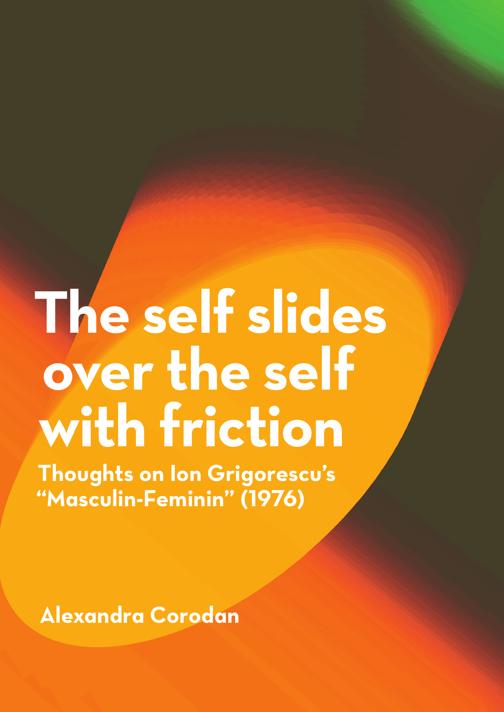Titelaufnahme
- TitelThe self slides over the self with friction : Thoughts on Ion Grigorescu’s “Masculin-Feminin" (1976)
- Verfasser_in
- Enthalten ininsightOut. Journal on Gender & Sexuality in STEM Collections and Cultures, (2024) H. 2. Diverse Infrastructures? Gender, Queer & the Foundations of Society
- Schlagwörter
- DOI
How does the fragmented and stratified logic of recording technologies interact with perception and what role do experimental film strategies play in the production of alternative narratives of gender? In his practice, Romanian artist Ion Grigorescu countered prevailing codes exuded by the national communist regime, by positively addressing the infrastructure of recording technologies such as analogue photography and film. Not dissociating from the ideological construction by representing the artefacts contradicting its doctrine, but by equally affirming both the fragmented and stratified nature of the media and exploring its semiotic potential, Grigorescu raised questions regarding the nature of machine, body, sexuality and domestic space. Tongue-in-cheek and vaguely crude, his 1976 film Masculin-Feminin film proposes a distinct model of hybridity, that through mechanical eyes, jumping frames, disjointed bodies and almost indecipherable letters, scratches at the codes that sustain dictatorial reality.
CV
Alexandra Corodan is an art historian and cultural worker; she lives and works in Vienna. She holds a Master's degree in Art History from the University of Vienna and is currently studying Critical Studies at the Academy of Fine Arts Vienna. Her research focuses on the Eastern European neo-avant-garde, media theory and its performative approaches. Using experimental zines and short prose, she investigates the potential of fragmentation and montage as an interdisciplinary practice. Corodan currently works in the archive department of ESTATE Brigitte Kowanz.
Citation
Alexandra Corodan, „The self slides over the self with friction: thoughts on Ion Grigorescu’s “Masculin-Feminin" (1976)”, insightOut. Journal on Gender and Sexuality in STEM Collections and Cultures, 2 (2024), S. 89-96, DOI: 10.60531/insightout.2024.2.13

